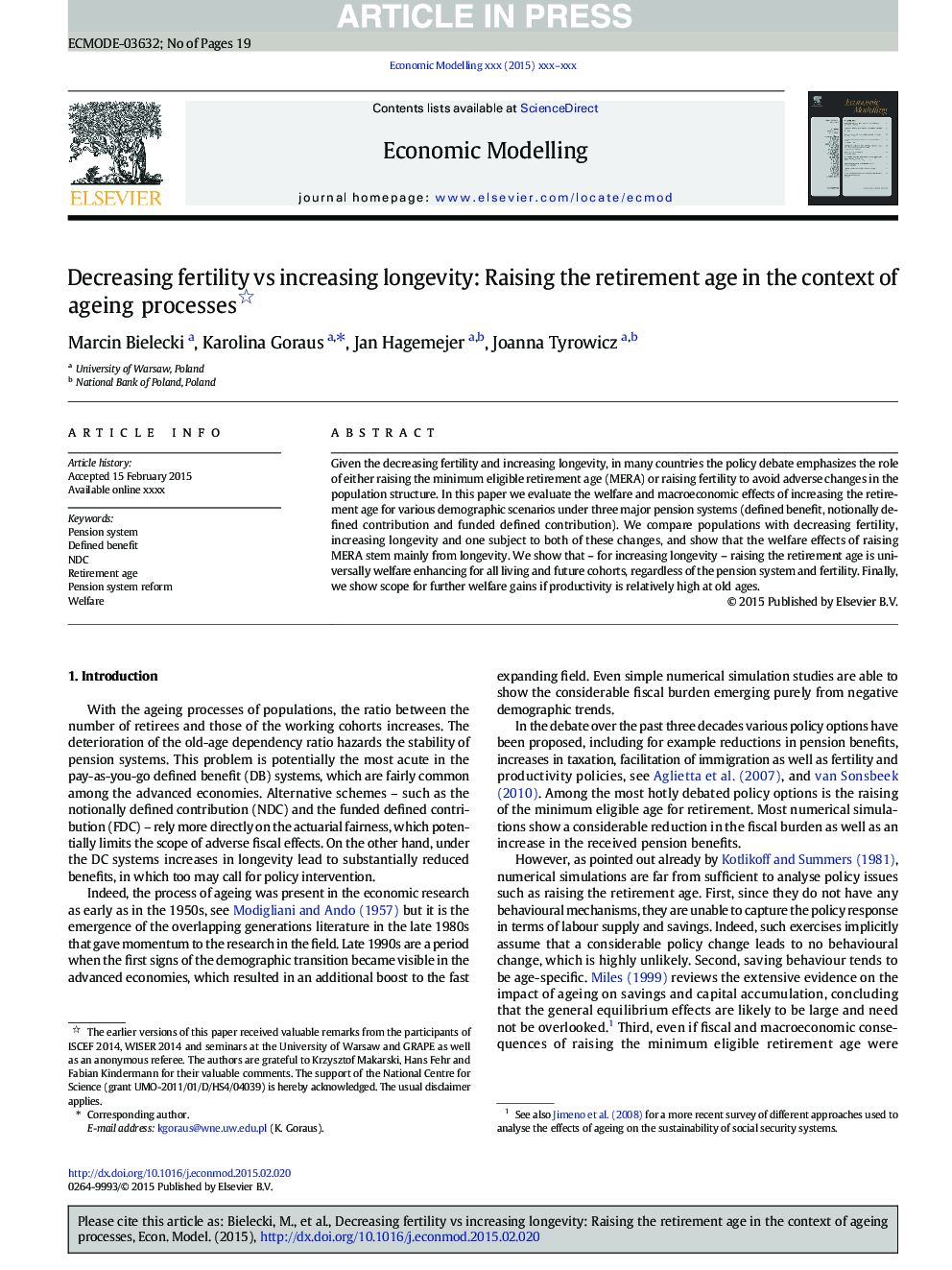| Article ID | Journal | Published Year | Pages | File Type |
|---|---|---|---|---|
| 5053529 | Economic Modelling | 2016 | 19 Pages |
Abstract
Given the decreasing fertility and increasing longevity, in many countries the policy debate emphasizes the role of either raising the minimum eligible retirement age (MERA) or raising fertility to avoid adverse changes in the population structure. In this paper we evaluate the welfare and macroeconomic effects of increasing the retirement age for various demographic scenarios under three major pension systems (defined benefit, notionally defined contribution and funded defined contribution). We compare populations with decreasing fertility, increasing longevity and one subject to both of these changes, and show that the welfare effects of raising MERA stem mainly from longevity. We show that - for increasing longevity - raising the retirement age is universally welfare enhancing for all living and future cohorts, regardless of the pension system and fertility. Finally, we show scope for further welfare gains if productivity is relatively high at old ages.
Related Topics
Social Sciences and Humanities
Economics, Econometrics and Finance
Economics and Econometrics
Authors
Marcin Bielecki, Karolina Goraus, Jan Hagemejer, Joanna Tyrowicz,
